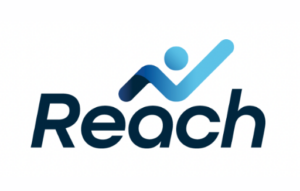Losmapimod has the potential to be the first drug to treat FSHD
 The much-anticipated Phase 3 clinical trial of losmapimod has formally begun with the dosing of the first volunteer, Fulcrum Therapeutics announced today. The Cambridge, Massachusetts-based company designed the trial to show whether this drug is safe and effective in slowing the progression of FSH muscular dystrophy.
The much-anticipated Phase 3 clinical trial of losmapimod has formally begun with the dosing of the first volunteer, Fulcrum Therapeutics announced today. The Cambridge, Massachusetts-based company designed the trial to show whether this drug is safe and effective in slowing the progression of FSH muscular dystrophy.
The randomized, double-blind, placebo-controlled Phase 3 trial, called REACH, will enroll approximately 230 adults at over 30 sites in the US, Canada, and Europe. The trial is designed to support the US FDA and European Medicines Agency (EMA) regulatory applications of lospmapimod for the treatment of FSHD. If approved, losmapimod would be the first and only therapy for the disease.
The primary efficacy endpoint in the REACH study will be the change over the course of the trial in a measure called reachable workspace (RWS). RWS is a method using the Kinect game controller to track a person’s arm movements in three dimensions. FSHD-related changes, such as a worsening of scapular winging or loss of strength in upper body muscles, leads to a decrease in RWS. These decreases correlate with real-life changes that are meaningful to patients. For example, as RWS decreases, individuals have greater difficulty with dressing, self-care, and being able to carry out daily tasks. The RWS was developed by Jay Han, MD, of the University of California, Irvine, with help from the FSHD Society and other funders. (Dr.Han explains RWS in this video.)
Secondary endpoints in the trial include muscle fat infiltration (MFI), an indicator of muscle health that is measured using magnetic resonance imaging (MRI); Patient Global Impression of Change (PGIC); and Quality of Life in Neurological Disorders of the upper extremity (Neuro QoL UE), a measure of patient self-reported health-related quality of life.
Currently, the University of Massachusetts Medical School in Worcester, MA, is the only site that has begun to enroll volunteers for the REACH trial. Additional sites are expected to activate soon. Patients who are interested in enrolling should visit the clinicaltrials.gov website and scroll to the “Locations” list near the bottom of the page to see a full list of sites. You can use the REACH trial screener to find out if you might be eligible for the trial.

Read Fulcrum’s press release below.
Learn more about clinical trial terminology here.
Read about the results from the Phase 2 clinical trial here.
Fulcrum Therapeutics Enrolls First Patient in Pivotal Global Phase 3 Clinical Trial of Losmapimod for Facioscapulohumeral Muscular Dystrophy (FSHD)
- REACH is the first Phase 3 trial for this rare, progressive, and debilitating muscular disease
- Losmapimod is an oral small molecule that has the potential to be the first therapy to treat FSHD, the second most common form of muscular dystrophy –
- U.S. Food and Drug Administration (FDA) granted Fast Track Designation in 2021
CAMBRIDGE, Mass., July 5, 2022 — Fulcrum Therapeutics, Inc. (Nasdaq: FULC), a clinical-stage biopharmaceutical company focused on improving the lives of patients with genetically defined rare diseases, today announced that the first patient has been dosed in REACH, a Phase 3 clinical trial designed to evaluate the safety and efficacy of losmapimod for the treatment of FSHD. The randomized, double-blind, placebo-controlled, multi-national Phase 3 trial will enroll approximately 230 adults at over 30 sites in North America and Europe. The pivotal trial is designed to support the U.S. FDA and European Medicines Agency (EMA) regulatory applications of lospmapimod for the treatment of FSHD. If approved, losmapimod would be the first and only therapy for the disease.
FSHD is a rare, serious, progressive, and debilitating disease that is caused by the aberrant expression of the DUX4 gene, which leads to skeletal muscle cell death and fat infiltration. Patients with FSHD experience progressive muscle weakness leading to significant impairment in function, including the inability to use their upper limbs, communicate via facial expression, and walk unassisted.
“The progression of FSHD can make it increasingly difficult to pursue work, hobbies, social and family life,” said Mark Stone, CEO of the FSHD Society. “The REACH trial with losmapimod represents the first real hope for those living with the disease, their families and their caregivers, who have waited so long for a potential treatment to be found.”
The primary efficacy endpoint in the REACH study will be the absolute change from baseline in reachable workspace (RWS). RWS is a quantitative and reliable functional measurement of disease progression in people with FSHD which correlates closely with how people living with the disease feel and function in a real-world setting. Secondary endpoints include muscle fat infiltration (MFI), an indicator of muscle health, Patient Global Impression of Change (PGIC), and Quality of Life in Neurological Disorders of the upper extremity (Neuro QoL UE), a measure of patient self-reported health-related quality of life.
Results from Fulcrum’s Phase 2 clinical trial, ReDUX4, demonstrated that losmapimod was superior to placebo across a number of clinically relevant endpoints. Losmapimod slowed disease progression and helped maintain function in adults with FSHD, as assessed by RWS at 48 weeks of treatment. Losmapimod also preserved muscle health over the course of 48 weeks, as assessed by MFI. The correlations between muscle health (MFI) and muscle function (RWS) was validated in a study recently published in the Journal of the American Academy of Neurology. Losmapimod has been studied in over 3600 people across multiple indications and has been found to be generally safe and well tolerated.
“The results from the Phase 2 study confirm the potential of losmapimod to be the first disease-modifying therapy for FSHD,” said Judy Dunn, Fulcrum’s president of research and development. “Based on input from patients, regulatory agencies, and the clinical community, we selected RWS as the primary efficacy measure in order to most effectively quantify the impact of losmapimod on slowing disease progression. The initiation of the REACH trial is a testament to our deep commitment to addressing the unmet medical needs of those living with genetically defined rare diseases and exemplifies our leadership in FSHD.”
Read the full press release here.


Thank you for this hopeful article, I am anxiously waiting to be called.
Hi
Im a FSHd patient..i need a therapy and im from germany